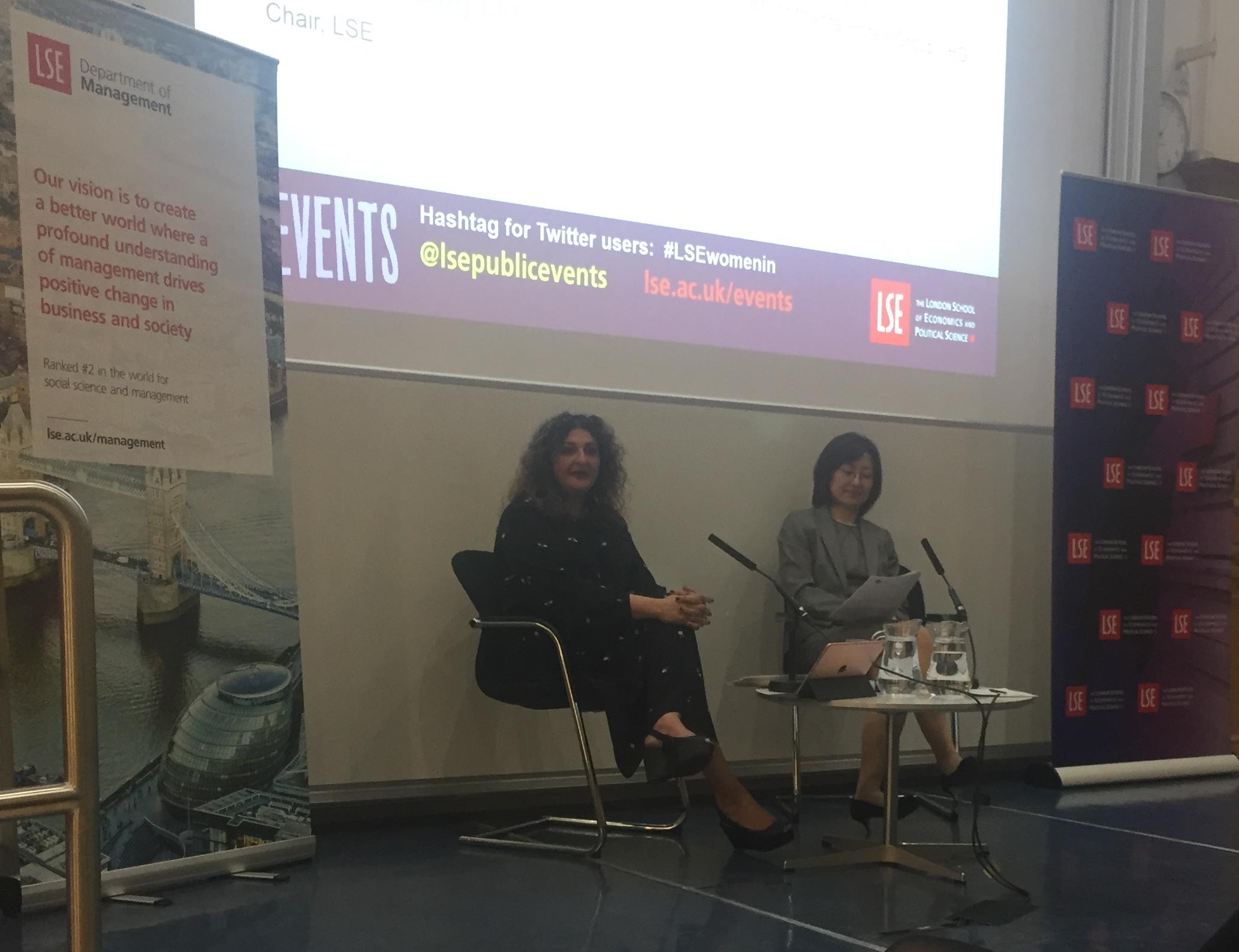Google boss Eric Schmidt shared his visions for the future at a recent LSE Department of Management public lecture.
Friday night and the Old Theatre at LSE was packed with students, academics and some of Britain’s computing pioneers to hear Eric Schmidt’s predictions and opinions on the future of computer technology. Schmidt helped grow Google from a Silicon Valley start-up to a global leader in technology, and has spent decades predicting technological innovations.
In conversation with Professor Chrisanthi Avgerou, the executive chairman of Google’s parent company Alphabet discussed the progress in Computer Science education, digital skills and opportunities that flow computing innovation in machine learning. Here are some of his thoughts on how computer technology will continue to changes our lives.
1.Change the way we work
The fear that the job market might be destroyed due to the onset of technology is not new, but with the development of new technology, automation might happen a lot faster than before. Automation is reshaping workplaces and will in years to come bring fundamental changes to almost every industry. Schmidt does not predict that human workers will be replaced by robots, but envisages cooperation between humans and robots in the workplace. Highly repetitive and mundane tasks will be automated, and give humans more time to focus on creative and interesting tasks. He sees robots as a tool to increase performance and productivity, and eliminate the mind crushing, boring tasks that many workers deal with every day.
2. Help us solve global challenges
According to the Google boss it is only our own creativity and innovation that limits the possible use of computer technology. Climate change is one area in which he envisions that technology can help, by using computers to help increase energy efficiency. He also envisions a large role of technology in healthcare by directing the resources to more accurate healthcare solutions and the use of robots in medical research.
3. Smarter education
Although computer science is already widely used in education, Schmidt envisions a new way of using computers to make education smarter. Recognising that everyone learns differently, he suggests using computers to monitor the different ways students learn. This will give teachers the ability to identify the most successful teaching models and augment their teaching to make education more effective.
4. More entrepreneurs
Schmidt is convinced that we need to produce more entrepreneurs everywhere, and calls upon universities and governments all over the world to encourage entrepreneurship and new ideas. He firmly believes that entrepreneurship and innovation will be the great business narrative for the next decade, pointing out that entrepreneurs not only boost our economy but can contribute to solving some of humanity’s largest issues.
5. Digitalisation of everything
No one can afford not to digitise services, according to Schmidt. Claiming that he discusses the issue of how to digitize every single day, Schmidt says that the question is no longer ‘do we need it?’ but ‘how do we achieve it?’ He believes that digitization is the only way forward, whether it is a business or a government, and that there has to be a plan (at the very least) to digitize services.
6. More benefits for more people
Schmidt is a firm believer that technological innovation will ensure more benefits for more people – giving them access better products, services and information. He believes that computer technology will continue to improve the standard of living and create opportunities for everyone. At the same time he questions if our addiction to technology is making us happier, pointing to the fact that 97 per cent of people sleep with their smartphones plugged in next to their bed, and touch their smartphones on average 1500 times (!) every week.
7. Machines teaching themselves
The past five years have been the years of the mobile, yet according to Schmidt the next generation is machine learning – i.e., the use of machine intelligence to make the mobile smarter. Instead of programming a computer, you teach a computer to learn something and it does what you want. Making the devices smarter is key, as their role in society is becoming increasingly important. He illustrated this by pointing out that smartphones are an increasingly important tool in all professions, even for nurses in the NHS.
Learn more about our MSc Management of Information Systems and Digital Innovation programme







Computers and mobile technology is changing our lives so fast.
Computing power is a critical component of modern life, allowing us to quickly and effectively process large amounts of data. Businesses of all sizes are now able to leverage the power of computing to automate and optimize mundane tasks, freeing employees to focus on more important work.
Computers are used as manipulate structures for a wide style of industrial and client gadgets. This consists of easy special purpose gadgets like microwave ovens and faraway controls, manufacturing facility gadgets together with business robots and laptop-aided design, and also general reason gadgets like personal computers and mobile gadgets along with smartphones.
Early computers have been simplest conceived as calculating gadgets. Since ancient instances, easy guide gadgets like the abacus aided humans in doing calculations. Early in the Industrial Revolution, a few mechanical devices have been built to automate lengthy tedious tasks, which includes guiding patterns for looms.
And while the Pixel 3a is definitely laudable for how a lot it offers in a $400 package, it’s also pleasing for the place it suggests this avenue could lead. The lion’s share of flagship phones have grow to be obsessive about offering additional luxuries to justify their growing prices, but the prevailing traits have left a whole host of assumptions fully unchallenged: The fine cameras are certain to simply essentially the most costly telephones. Thinner is invariably better. 1000 bucks is an affordable cost for a telephone with a view to be out of date in three years at satisfactory.
Thank you author for such a nice blog. Keep it up.
This is very good
Computers are amazing machines that have the ability to change our lives in ways we never thought possible. In the past, they’ve helped us become more efficient and organized. Today, they’re helping us connect with people and experiences we never would have had access to otherwise.
Computing power is a critical component of modern life, allowing us to quickly and effectively process large amounts of data. Businesses of all sizes are now able to leverage the power of computing to automate and optimize mundane tasks, freeing employees to focus on more important work.